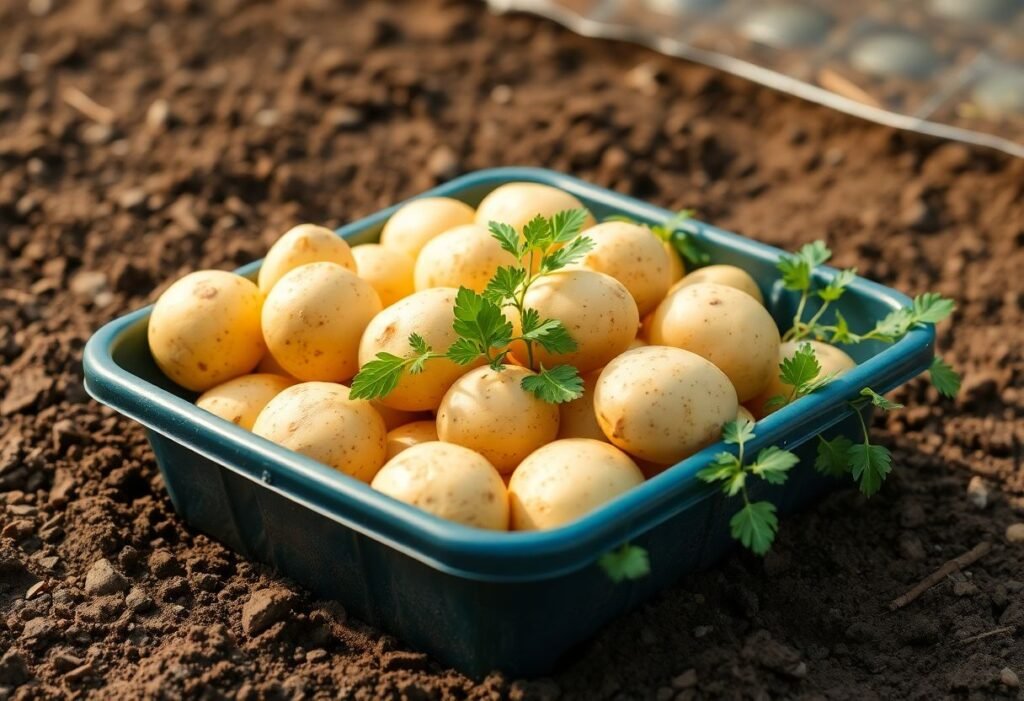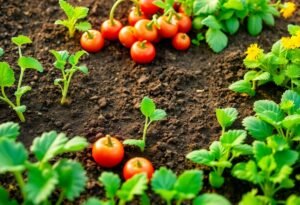Why Use Fertilizer for Potatoes?
Potatoes, like all crops, require essential nutrients for optimal growth. Fertilizing potatoes is vital to provide them with the right balance of nitrogen, phosphorus, and potassium. These macroelements not only affect the growth but also the flavor and quality of the tubers. By using the correct fertilizer for potatoes, you can achieve better results in your garden.
Types of Fertilizers for Potatoes
The market offers a variety of fertilizers designed specifically for growing potatoes. You can choose from organic options, such as compost or manure, to chemical fertilizers. Each type has its advantages. A blend of organic fertilizer with mineral ones can provide potatoes with everything they need for healthy growth and abundant yield.
How to Apply Fertilizer for Potatoes?
When and how should you apply fertilizer for potatoes? The best time for fertilization is early spring, just before planting. It is equally important to determine the dosage correctly. Over-fertilization can harm the plants and reduce the quality of your harvest. Usually, fertilizers are suggested to be applied before or during planting potatoes, as well as during the growing season to support their growth.
Natural Fertilizers for Potatoes
More and more gardeners are turning towards natural solutions. Fertilizing potatoes with compost or manure is a great way to boost the nutrient content in your soil. These methods are not only eco-friendly but also positively affect soil fertility, leading to better harvests in the end.
The Impact of Fertilizer on Yield Quality
How does fertilization affect the quality of tubers? The right nutrients allow for larger, firmer, and tastier potatoes. Research shows that potatoes fertilized with the right preparations contain adequate levels of starch, which is vital for their taste and nutritional quality. Also, a lower risk of pest and disease attacks is undoubtedly a benefit of using fertilizers.
Common Mistakes in Fertilizing Potatoes
Mistakes in fertilization can lead to disastrous results. It is crucial to avoid the application of excessive amounts of fertilizer, which can damage roots and lower yields. Furthermore, incorrect fertilizer selection before planting potatoes can lead to poor quality. Understanding the needs of your plants and adjusting your fertilization method accordingly is key.
Best Practices for Fertilizing Potatoes
To achieve the best results from fertilizing potatoes, it’s important to follow a few guidelines. First, regular soil testing will help determine its needs. Second, adhering to local guidelines for soil and fertilization will help achieve ideal conditions for plant development. Don’t forget about crop rotation, which can naturally enrich the soil with nutrients.
Conclusion
Proper fertilization of potatoes is essential for success in the garden. Using the right fertilizers, both organic and chemical, will help you achieve exceptional yields. We encourage you to experiment and discover the best solutions for your soil and vegetables. May your harvests be healthy and plentiful!
Disclaimer
This article is for informational purposes only and does not substitute for professional gardening advice.

















